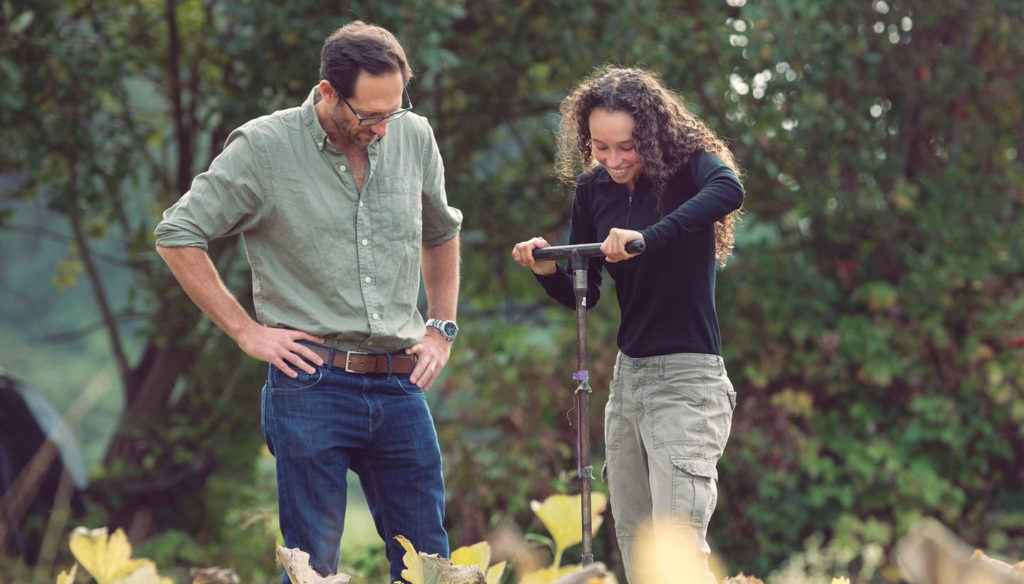
In summer 2020, Emma Yates was one of the undergraduate students analyzing soils for the Long-Term Biodiversity Monitoring Project at the UBC Farm, when the students hit upon an interesting pattern.
Areas under agricultural production had significantly fewer earthworms than adjacent areas like grassy field margins and hedgerows. While most earthworms are non-native to B.C. soils, they are important indicators of soil health and could also reflect important differences in soil fauna – the critical animal life in soils that contribute to soil health and food production.
“There was just this huge discrepancy between earthworm abundance in the grass and other areas directly next to the crop production fields…I thought to myself, we’ve gotta be able to do something about this,” says Yates.
Yates completed a Directed Studies to further analyze the data she had collected, and couldn’t get the idea of soil fauna out of her head. “I decided to reach out to Sean [Smukler]. He told me we could create a study to kind of encapsulate my interests, the goals of his lab’s existing project, and the questions farmers were raising.”
Yates is now a master’s student in the LFS Sustainable Agriculture Lab, led by Associate Professor Sean Smukler. Her study “Evaluating Tarps to Terminate Cover Crops and Reduce Tillage” is part of the larger project “Too Much Water or Too Little? Climate Resilient Vegetable Farming,” which was launched in 2019 by Kira Borden and Raelani Kesler under the supervision of Dr. Smukler. The larger project is seeking to help farmers maintain soil health in a changing climate, as farmers grapple with more intense droughts and flooding events.
“As we have seen so obviously over the last year, farmers are facing increasingly unpredictable weather, making a hard job even harder,” says Dr. Smukler. “Our project was designed to help address questions farmers have raised about particular strategies to increase their farm’s resilience to weather events. We hope to provide some quantitative evidence to help farmers evaluate and manage alternatives, such as silage tarps and other soil management approaches. Importantly we are trying to do this keeping longer-term impacts in mind.”
Please visit ReachOut, the Faculty of Land and Food Systems’ newsletter, to read the full story.
Through Strategy 8: Student Research, UBC is expanding opportunities for undergraduates to gain first-hand experience in research and is strengthening research experiences for graduate students and postdoctoral fellows.